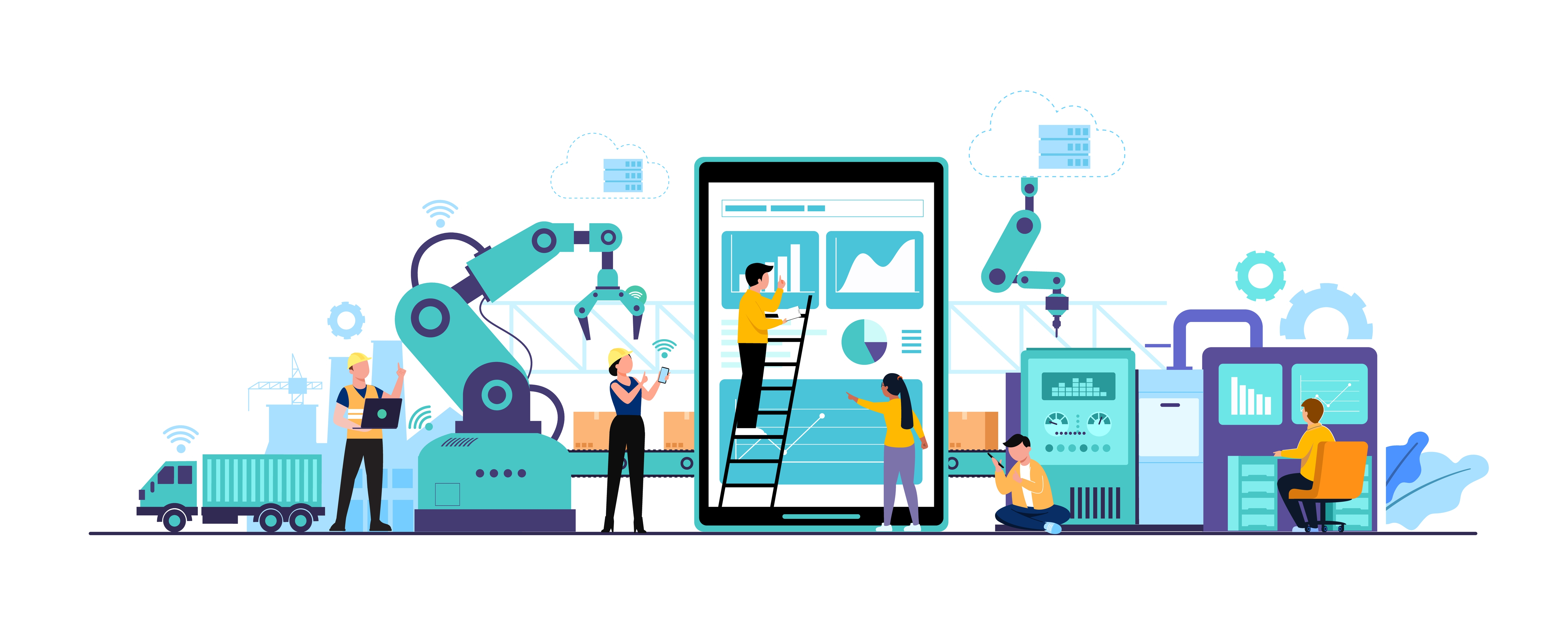
The manufacturing industry is undergoing a major transformation, thanks to the rise of smart factories and automation. Smart factories leverage the latest technologies such as the Internet of Things (IoT), artificial intelligence (AI), and big data to create highly efficient, cost-effective, and sustainable manufacturing processes. With the global pandemic, the demand for automation has grown even more, as businesses look for ways to maintain operations while keeping employees safe. In this blog, we will explore some of the current trends in smart factories and manufacturing automation.
Increased Efficiency through Predictive Maintenance
Smart factories use data analytics and machine learning to predict equipment failures before they occur, thereby reducing downtime and increasing production efficiency. Predictive maintenance ensures that repairs are made before a breakdown, eliminating the need for unscheduled maintenance and minimizing the risk of equipment failure.
Greater Flexibility and Customization
Smart factories allow for greater customization of products and more flexibility in the production process. Advanced robotics and automation technologies enable quick and easy reconfiguration of manufacturing lines to accommodate changing customer demands.
Sustainable Manufacturing Practices
Smart factories can significantly reduce the environmental impact of manufacturing processes. By monitoring and optimizing energy consumption, reducing waste and emissions, and increasing the use of renewable energy sources, manufacturers can make significant strides toward sustainability.
Collaborative Robotics
Collaborative robots, or cobots, are designed to work alongside humans, providing assistance in tasks that are repetitive, dangerous, or require high precision. Cobots can improve efficiency and safety while reducing the risk of accidents and injuries.
Cloud Computing and Data Analytics
Smart factories leverage cloud computing and data analytics to collect and analyze vast amounts of data from sensors, machines, and other sources. This data is then used to identify patterns, optimize production processes, and improve overall efficiency.
In conclusion, smart factories and manufacturing automation are revolutionizing the manufacturing industry, making it more efficient, sustainable, and profitable. By leveraging the latest technologies and trends, businesses can stay ahead of the curve and meet the demands of an ever-changing market. As the world continues to evolve, the importance of smart factories and automation will only continue to grow. To learn more about how your business can benefit from these trends, reach out to a smart factory consultant or visit our portfolio for more information.
'Smart Factory' 카테고리의 다른 글
| Cloud Computing and Data Analytics Smart Factory (0) | 2023.04.15 |
|---|---|
| Collaborative Robotics with Smart Factory (0) | 2023.04.15 |
| Sustainable Manufacturing Practices with Smart Factory (0) | 2023.04.15 |
| Flexibility and Customization Smart Factory (0) | 2023.04.15 |
| Increased Efficiency through Predictive Maintenance with Smart Factory (0) | 2023.04.15 |



